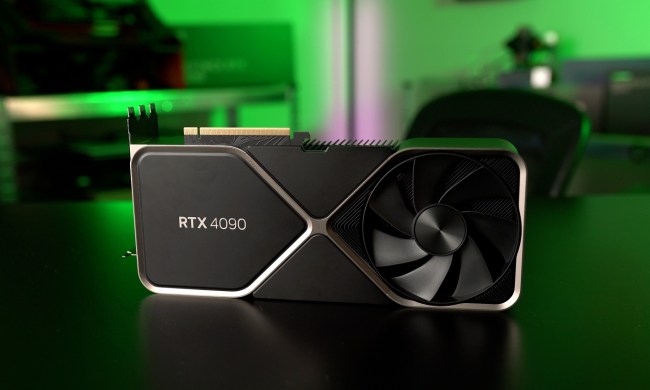After you’ve spent the four-day Thanksgiving weekend scraping turkey bones and grandma’s mayo-based cherry salad off your best china, this may seem a little late, but we still have to chime in with this perennial advice: Quit washing your dishes by hand. We’re in this for the species, people.
See, we cover a lot of smart home technology here at Digital Trends and compared to the 1981 GE compact that your landlord shoehorned into a corner of your apartment while you were in college, a new dishwasher is like a Ferrari running against a Studebaker. These things are cool, quiet, and save not only time but real money.
But that’s not the point. The point is that people are dumb, at least when it comes to dishwashing.
You kind of have to run the math (and/or the physics) when you’re thinking about doing dishes. Most kitchen faucets move one to two gallons of water a minute. Most people take 8 to 10 minutes to wash a meal’s worth of dishes.
Meanwhile, an Energy Star-rated dishwasher must — by government rules — use less than 3.5 gallons of water per cycle and less than 270 kilowatts per hour (kWh) per year.
More likely than not, your mom or dad taught you how to do dishes. Fill a basin with soapy water to scrub grubby plates in, and leave the faucet running in another basin for rinsing. That’s a perfectly logical way to do the dishes — if it’s 1950 and America has all the resources it ever needs and all the water is clean and plentiful.
Things have changed.
Today, the Department of Energy sets standards that a non-energy-efficient dishwasher must use less than five gallons of water per cycle, and a compact dishwasher (like the one in your college apartment) use less than 3.5 gallons. Further back than 15 years ago, these water hogs would have used up to 10 gallons per cycle.
More math: In order to wash the same amount of dishes that can fit in a single load of a full-size dishwasher and use less water, you would need to be able to scrub and rinse eight full place settings and still limit the amount of water you use to less than two minutes.
Last point: Dishwashers are better than you at washing dishes. Modern dishwashers have a bit of technology called a “soil sensor” that measures how dirty the dishes are and wash more or less depending on the result. They also spray highly controlled jets of water at degrees approaching 140 Fahrenheit (60 Celsius for our Euro friends), which is way hotter than most people’s hands can manage.
Besides, sponges are gross, even cool 3D-printed sponges; an everyday dish sponge can carry approximately 10 million bacteria. Also, you could totally be doing something else instead of being elbow-deep in dinner plates for 20 minutes a night. So buy yourself a new dishwasher and save yourself a whole bunch of time and money.
Lastly, learn how to load a dishwasher properly. Your relatives and roommates will thank you.


